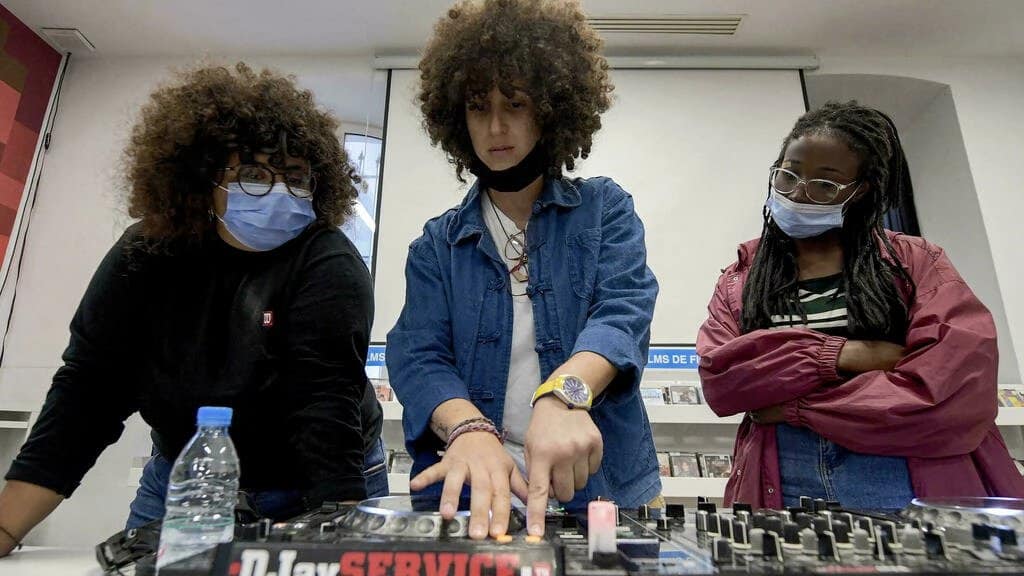Fouchika Junior adjusts her headphones, flicks a slider and seamlessly drops the next tune: one of Tunisia’s rare female DJs, she is helping other women break into a male-dominated world.
“DJing isn’t very common among women,” she said.
“I’m trying to give them an opportunity so they understand that a woman can be a DJ in Tunisia — or anywhere.”
The 29-year-old, whose real name is Yasmina Gaida, works in cinema by day.
But since taking a three-day DJing course five years ago, she has mastered the decks and now plays various styles of house music in clubs across Tunis.
At the French Institute in central Tunis recently, she was giving Nada Benmadi, 25, her first lesson in mixology.
“I want to bring music lovers together to dance and spread positive energy,” said Benmadi, an aspiring sound engineer who wants to one day open her own production studio.
But “being a female DJ in Tunisia, that makes most families afraid,” she said.
“You get home late at night, and it’s mostly a male thing.”
‘Toxic’ environment
Fouchika, whose DJ name means “hyper” in Tunisian Arabic, said club owners were sometimes wary of hiring a female DJ for a night.
“When it’s a man, they say ‘OK, send me your profile on SoundCloud’, and they can go and mix,” she said, referring to the streaming platform where DJs and musicians can share their work.
“But when it’s a girl, they ask, ‘have you ever mixed before?'”
“They see it as a technical thing and so not really made for girls,” said the DJ, wearing a loose blue shirt and her hair in an Afro.
Fouchika said her parents — a make-up artist and a hotel entertainer — didn’t stand in the way of her passion, but some of her students face more resistance.
“Sometimes I have to go and meet their families to tell them, ‘everything’s OK, we’re not doing anything bad, just music’,” she said.
While Benmadi said family members had encouraged her to do what she loves, many women in Tunisia face obstacles to pursuing their interests.
“DJing isn’t seen as ‘safe’ for Tunisian women,” said Olfa Arfaoui, who set up the DJ Academy for Girls in 2018.
“It’s seen as a difficult trade dominated by men, and which happens in an environment that can be toxic or even violent for women.”
‘Social change’
But now, she added, “women have started entering the clubbing space, which is getting used to their presence”.
In three years her academy, which she said was the first in the Arab world, has trained about 100 young women.
And in a country with 40 percent youth unemployment, and where only 28 percent of women work, the hobby allows some “to use their passion for music to earn money”, Arfaoui added.
The academy also offers courses on sound engineering and design as well as music production.
Arfaoui said it all helped boost students’ self-confidence.
“Music helps them speak more freely and puts them at ease,” she said, adding that it can also be “a tool for social change, and to create more diversity and equality.”
Former student Roua Bida, 33, said she wanted to fight against men who “think we’re going to take away their space”.
Along with Fouchika and others, they are setting up a collective of female DJs.
“If we each battle on our own, we’ll always have the same problems, but if we’re united… people will give us a chance,” she said.








